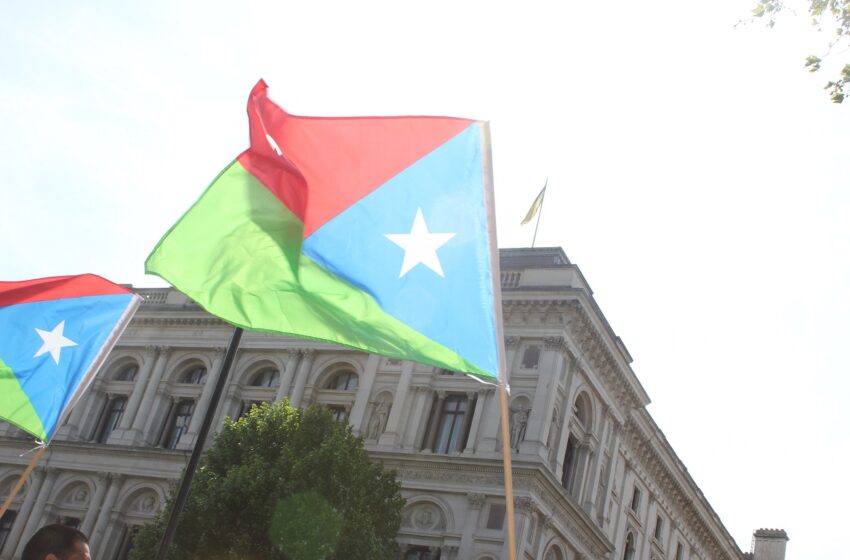Indian State Should Focus on Unconventional Methods: Jamal Nasir Baloch
Why a Two-State Solution for Israel, but Not for Pakistan and Iran?

Flag of Balochistan
Author: Siraj K
The Israel and Palestine conflict has long been a focal point of global attention, with debates surrounding the most viable resolution. One proposed solution is the establishment of a two-state system, granting sovereignty to both Israel and Palestine. However, a paradox arises when scrutinizing nations that advocate for a two-state solution for Israel and Palestine, such as Pakistan and Iran, as they simultaneously deny a similar right to the Baloch nation.
Balochistan, divided by the borders of Iran, Pakistan, and Afghanistan, is home to the Baloch people, who possess a distinct historical and cultural identity. Unlike the Palestinians, who are Arabs and have several Arab states representing their interests, the Balochs find themselves in a precarious situation, because neither Muslim states nor Western democracies support Balochistan’s national aspiration. The Baloch nation has a unique history of continued statehood, with historical evidence pointing to the existence of Baloch states in the region long before the advent of modern nation-states.
While the Palestinians can claim cultural and linguistic affinity with various Arab nations, the Baloch are distinct as a stateless nation with a long history of self-governance. Balochistan was an independent state well before the British colonial era, and it was later divided among Iran, and Afghanistan, in the 19th century and the eastern remaining part of Balochistan was occupied and annexed by Pakistan in 1948. This historical context sets the Baloch apart from the Palestinians and underscores the need for an understanding of their struggle for self-determination and national liberation.
Pakistan and Iran, both proponents of a two-state solution for Israel and Palestine, seem to exhibit a glaring inconsistency when it comes to recognizing the rights of the Baloch people. Advocating for a two-state solution in one part of the world while suppressing similar aspirations within their territory raises questions about the sincerity of these countries in promoting the principles of self-determination and sovereignty.
While championing the cause of Palestinians, Pakistan and Iran have systematically oppressed the Baloch people. Denying them the right to statehood and national liberation, Iran and Pakistan appear to be pursuing policies that endanger the very existence of the Baloch as a distinct nation. The apparent hypocrisy in advocating for a two-state solution while suppressing the aspirations of the Baloch exposes the duplicity and hypocrisy of those states.
The Baloch people find themselves in a precarious position, facing existential threats from both Iran and Pakistan. Reports of human rights abuses forced disappearances, and military operations in Balochistan are well-known among international observers. The policies of Pakistan and Iran are aimed at suppressing the national identity of the Baloch nation and erasing its distinct history. The fear of cultural assimilation and the imposition of a dominant national narrative loom large, endangering the very fabric of Baloch identity. In the face of such challenges, the Baloch struggle for recognition as a distinct nation becomes a pressing issue that demands global attention and intervention.
The paradox of advocating for a two-state solution in one region while denying a similar right to another exposes the inconsistencies in the stance of countries like Pakistan and Iran. Balochistan’s unique historical context and the distinctiveness of the Baloch people as a stateless nation underscore the need for a more nuanced approach to their struggle for national liberation.
As the international community grapples with conflicts and seeks resolutions, it is imperative to recognize the plight of the Baloch people and their right to determine their own destiny. Balochistan’s status as a unique and historically independent country should not be overshadowed by geopolitical considerations. By acknowledging the rights of the Baloch people, the international community can demonstrate a commitment to justice, human rights, and the principles of self-determination—acknowledging the rights they perceive for Palestine, for the Baloch nation too.
About the author: Siraj K is a Baloch political activist and a member of the Free Balochistan Movement’s UK Branch









